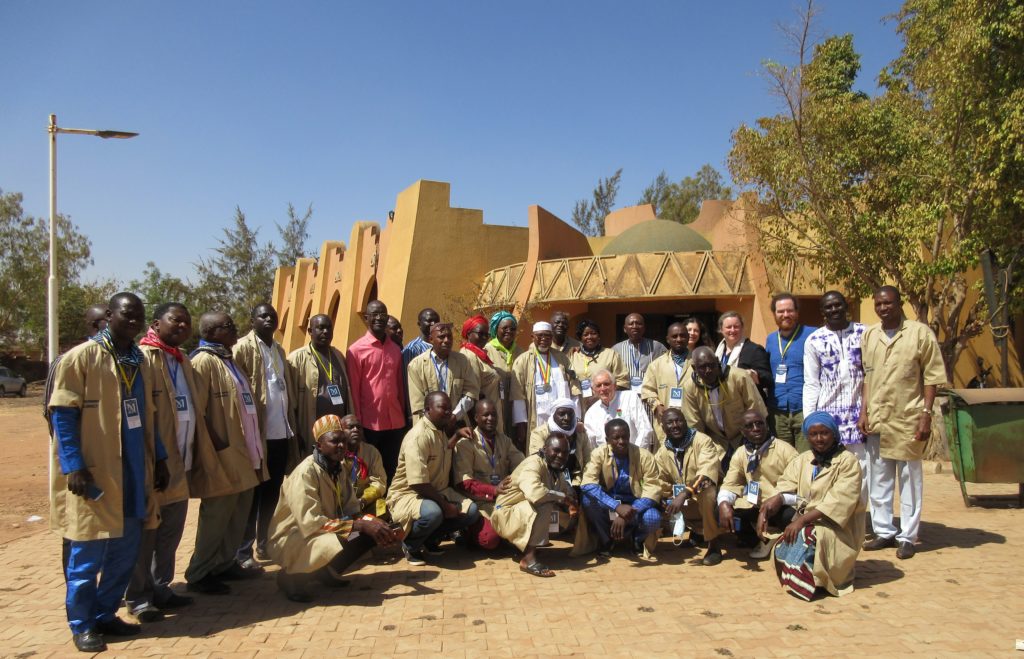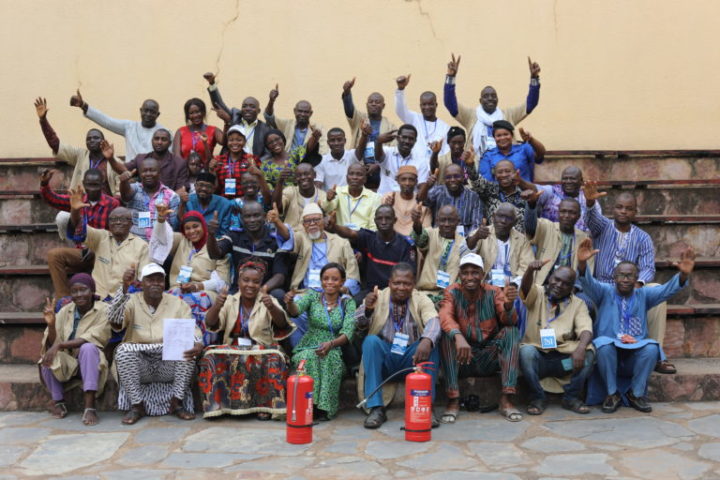The objectives of this project have been successfully achieved: 22 museums in the Sahel region and their staff have been strengthened in their security capacities, helping them to better combat the illicit trafficking of cultural property.
One and a half years after its launch in November 2022, this project has been completed thanks to the close cooperation between ICOM and its National Committees in Burkina Faso and Mali, the participation of 22 museums in these two countries as well as the financial support of the ALIPH Foundation.
Despite having to adapt to the unsteady security context of the region, the project effectively fulfilled its objectives, including:
- The organisation of two in-person seminars in Ouagadougou (Burkina Faso) and Bamako (Mali) with the attendance of museum professionals and experts from both countries together with international specialists.
- The reinforcement of material capacities for security and risk management for each of the 22 participating museums.
- The elaboration of a tailored emergency plan template for these museums.
- The production of communication materials such as a documentary film on the project and a good practices booklet designed for Burkinabè and Malian museum professionals.
Strengthening capacities and creating dialogue between museum professionals through participative seminars
The first seminar was conducted fully in person in Ouagadougou (Burkina Faso) in January 2023. Professionals from both countries, national and international experts, and staff from the ICOM Heritage Protection Department were present and worked for eight days on topics such as documentation, storage, and risk management as well as operational tools to fight the illicit trafficking of cultural goods.
The seminar was divided between theoretical and practical modules, enabling the participants to implement and comment on the best practices presented. The discussions between the Burkinabè and Malian museum professionals were encouraged thanks to a working methodology with mixed teams. The modules were conducted by Mr. Gaël de Guichen, internationally renowned expert in preventive conservation. His modules mainly focused on documentation and storage. Mr. de Guichen presented existing best practices and tools, including tools from partner organisations such as ICCROM (e.g. the Re-Org tool).
During the seminar, Mr. de Guichen also received an official distinction from the Minister of Culture in recognition of his decades of dedication and work in favour of museum collection conservation.
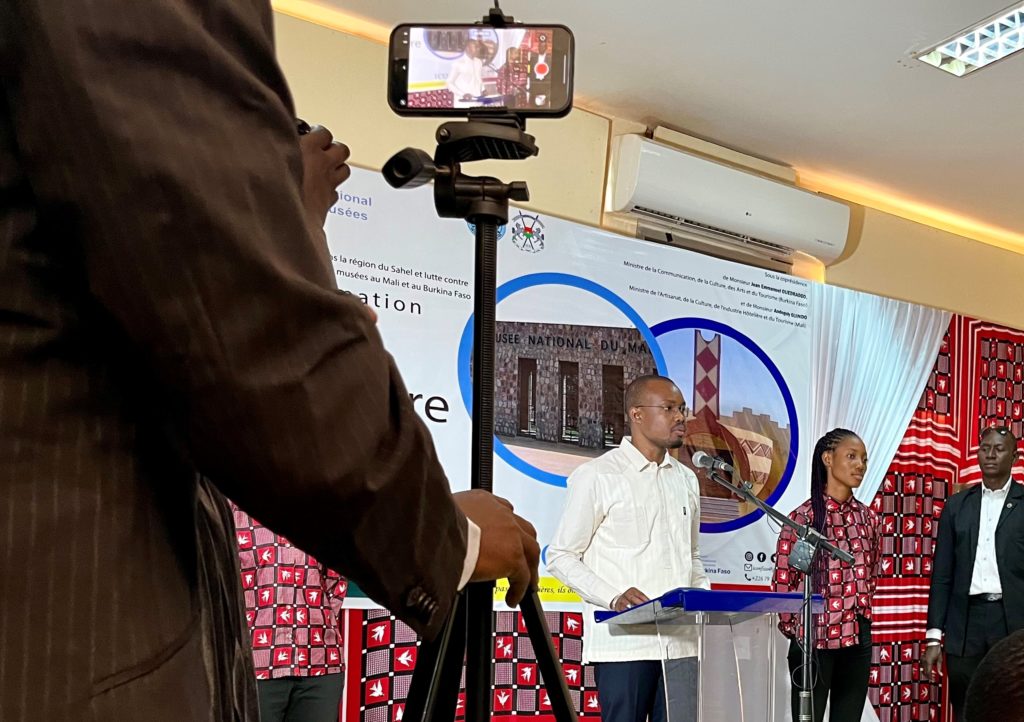
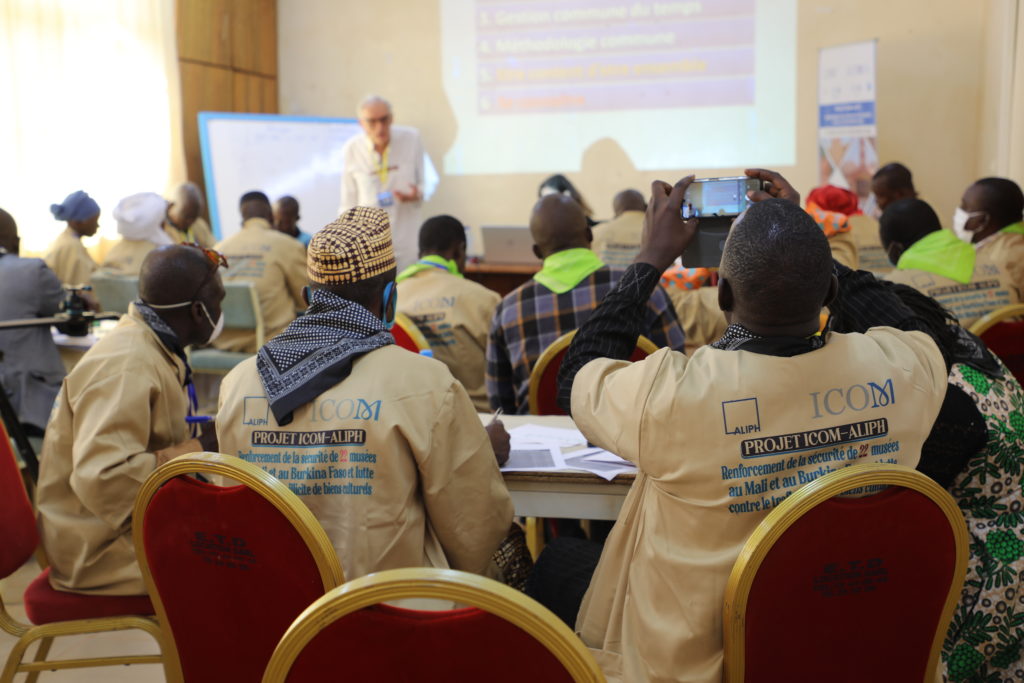
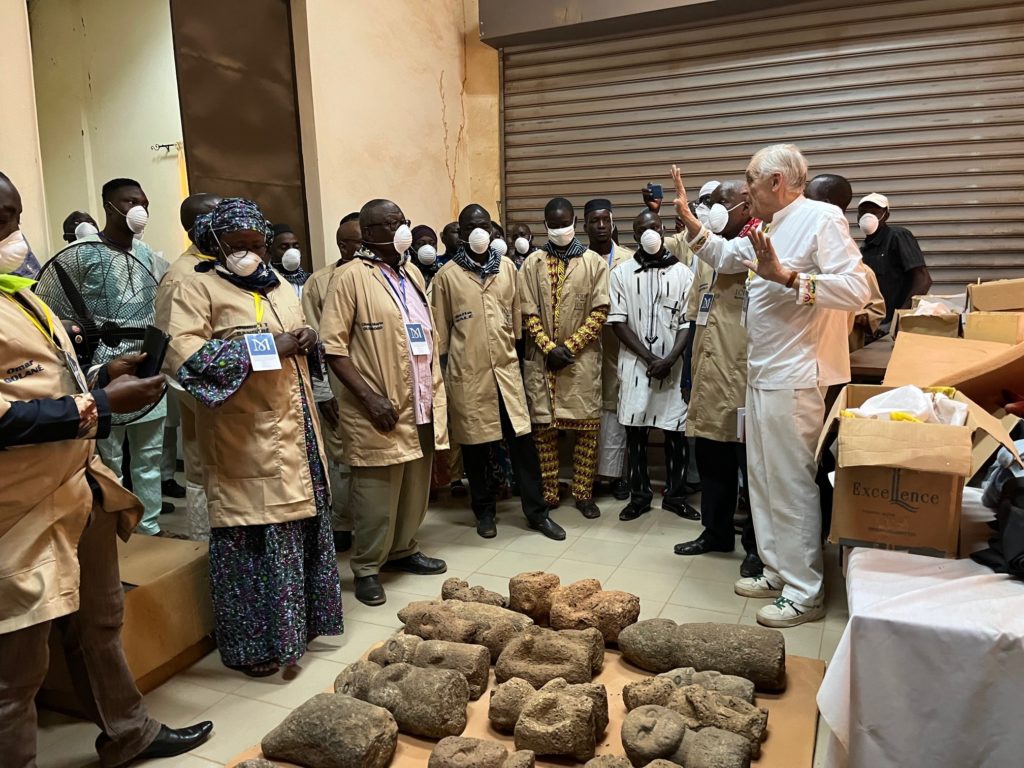
The second seminar took place in Bamako (Mali) in October 2023, mainly in person, with the ICOM Heritage Protection Department participating online, due to security reasons. It built upon the skills already developed during the first seminar in Ouagadougou, to then develop the different steps of emergency planning, always focusing on dialogue between national and international experts.
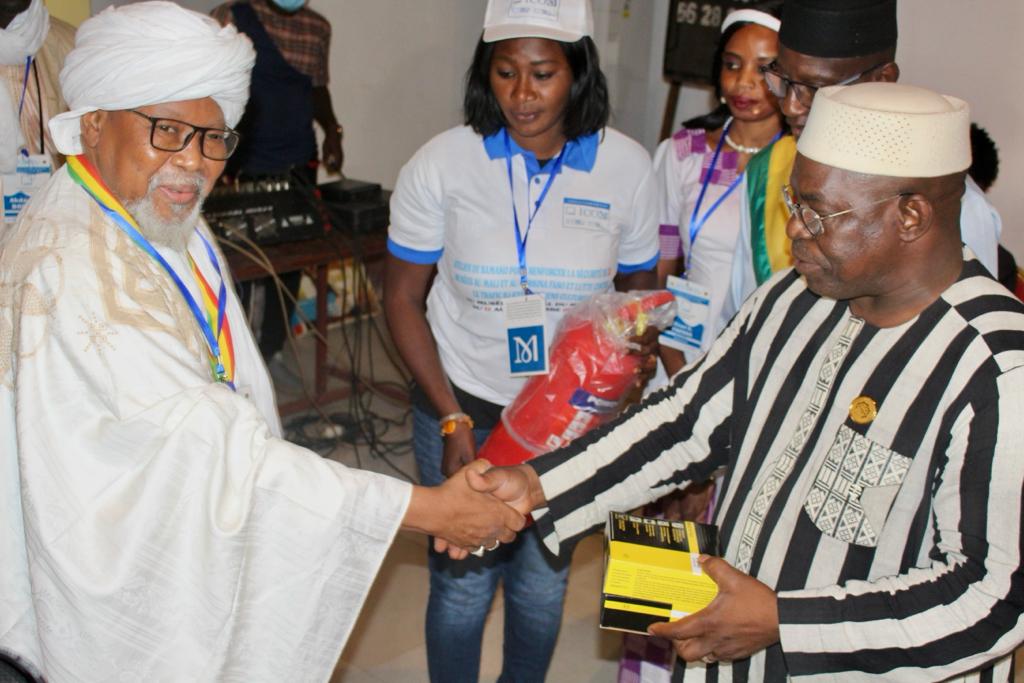
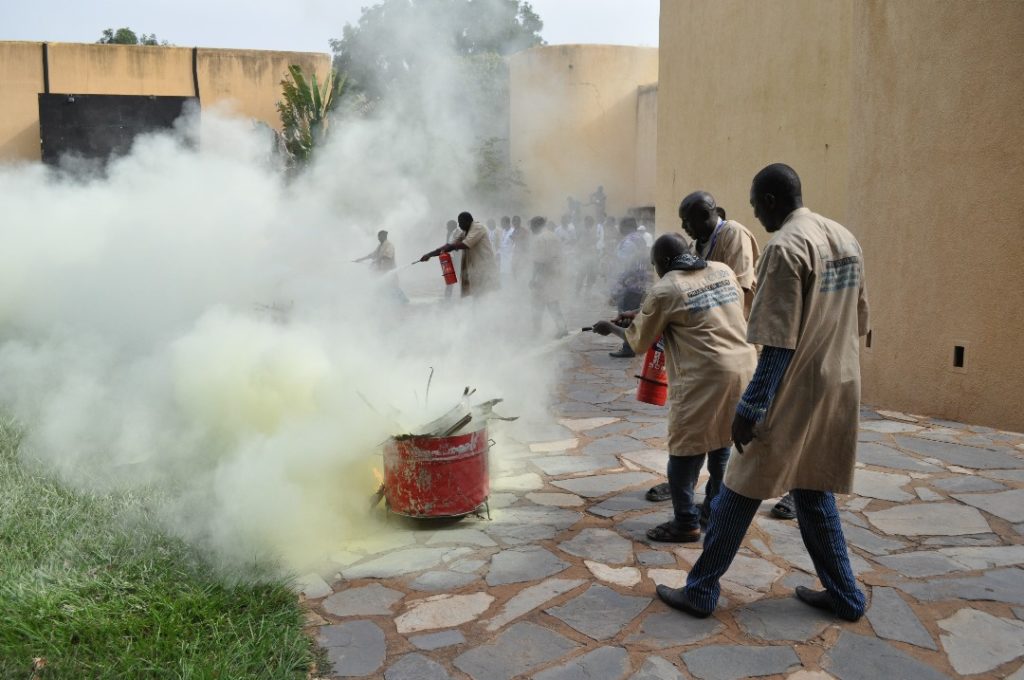
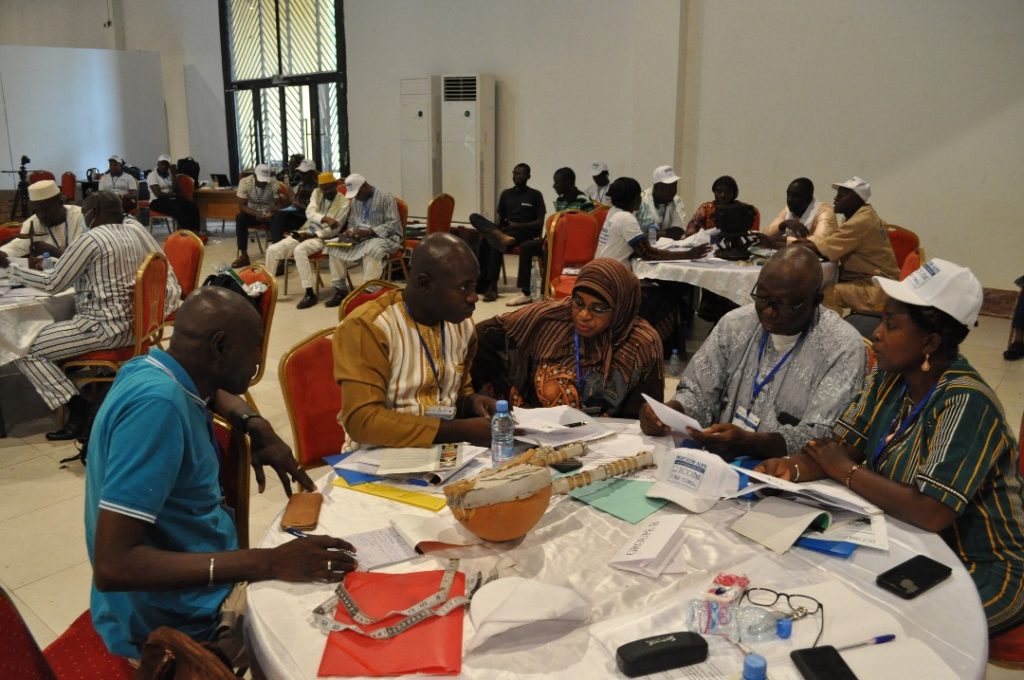
Both seminars strived to address issues specific to the local context. Therefore, the invited experts were mostly from Mali and Burkina Faso and the practical exercises were based on local examples. The modules presented focused on specific threats to local museums, such as insecurity due to armed conflict, which increases the risk of the illicit trafficking of cultural property, and threats posed by climate change. In order to further foster regional cooperation, an expert from Côte d’Ivoire, Dr. Aman Jean-Pierre N’Gbesso, who participated in the recently completed ALIPH-ICOM project in Côte d’Ivoire, also attended and shared his experience (both successes and challenges) of such projects. The President of ICOM Africa, Mr. Jean-Paul Koudougou, was present as an expert but also to explain the role of ICOM Africa, a newly established entity, within the ICOM Network.
| The project was positively received by its participants who particularly underlined the links created between them and museum professionals from neighbouring countries.
ICOM collected some testimonies on the experience: “Continuous training is always important. It’s an effective way of acquiring new management tools for museum security. Each professional brings his or her own specific experience of museum management to the table, enriching what already exists and learning from others.” Ms Diallo Salimata Ouattara, Director of the Women Museum Muso Kunda. “In times of crisis, this training is essential for the survival of our museums.” Dr Daouda Keita, Director General of the National Museum of Mali. |
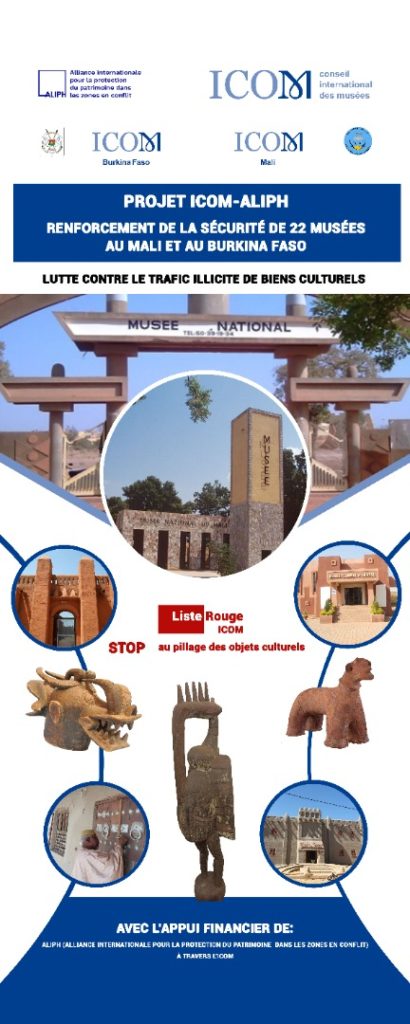 |
Delivering equipment to increase security in museums
To complete and support the training of museum professionals, equipment for basic security measures (from simple padlocks and fire extinguishers to CCTV material) as well as for documentation and reserve management (from inventory books and computers to storage shelves) was delivered to the participating museums in the two countries.
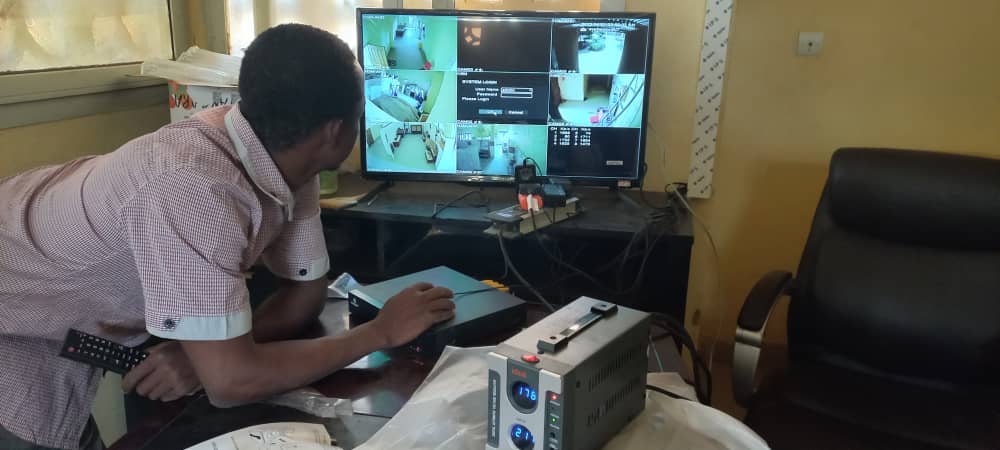
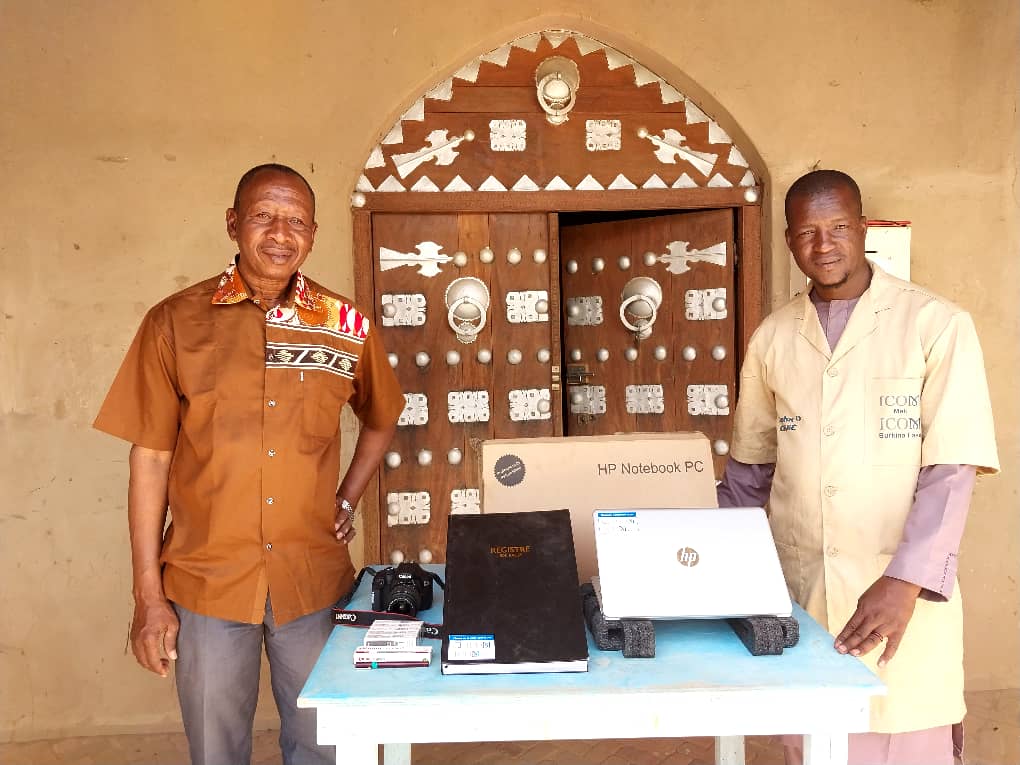
Three museums in each country received particular attention in this regard: the National Museum of Burkina Faso (Ouagadougou), the Museum of Music (Ouagadougou) and the Museum Sogossira Sanon (Bobo-Dioulasso) in Burkina Faso, as well as the National Museum of Mali (Bamako), the Municipal Museum of Timbuktu and the Kore Museum (Ségou) in Mali.
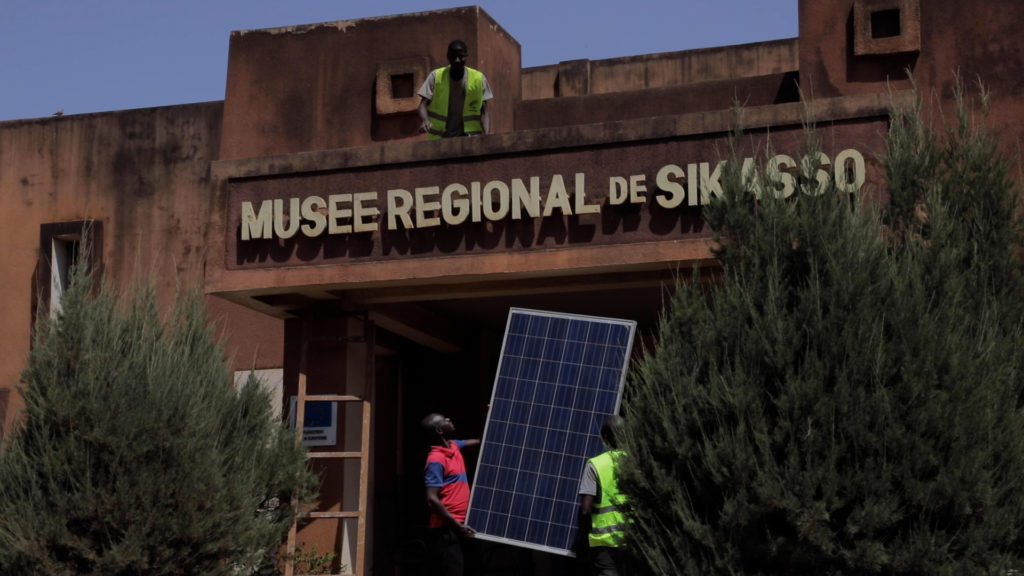
A key concern of the project was to provide sustainable practices and tools to increase museum security adapted to current issues. For example, solar-powered motion-sensor lighting was installed in several museums, to reduce museum vulnerability to power outages and to reduce the energy costs of the building.
Developing tailored and concrete emergency plans
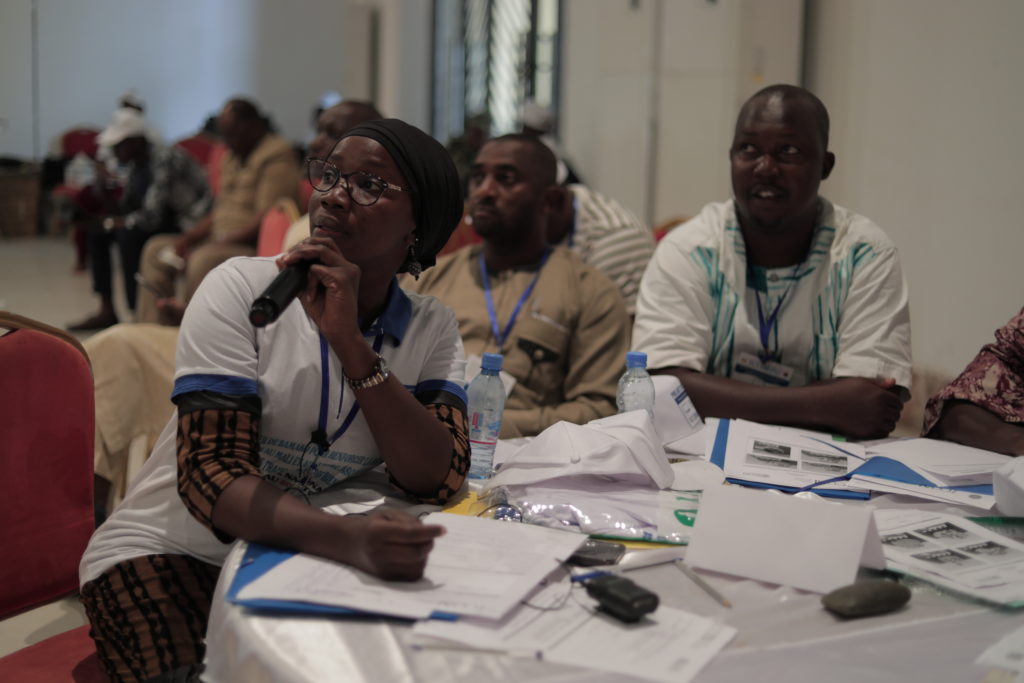
The aim of the project was also to increase preparedness to crisis for the participating museums. The ICOM Heritage Protection Department developed, in consultation with the participants of the project, an Emergency Plan template that has been distributed to all the professionals attending the seminars. This plan includes measures to prevent and respond to crisis, define support networks, and plan for the evacuation of people and objects from the collection. The 22 participating museums, advised by national experts, now have a strong basis to pursue and regularly update their risk preparedness.
Raising awareness on the project and sharing knowledge through a documentary film
One of the central aspects of the project’s design and implementation was the importance of fostering a sense of ownership – and the ability of the project to continue beyond the formal end date, ensuring that the knowledge and related activities had a long-lasting impact on the museums and, by extension, their communities.
To this end, a documentary film has been produced, based on videos collected during the different phases of the project, including the seminars and the installation of the security equipment in the partner museums.
It will also be accompanied by a booklet of good practices, which will be distributed to all of the museum professionals involved in the project, enabling them to share the experience and skills developed with their peers at local level.
This project was also an opportunity to create links between professionals from both countries and international experts. It could now be replicated in different regions in Africa, building on the experience already acquired in the Sahel region:
“Museums need the means to secure, document and manage their collections. Tools, good practices and expertise exist at national and international levels, but across the world, museums lack the financial resources to properly implement them. In this project, thanks to ALIPH, it was possible to do it in Burkina Faso and Mali. This project clearly showed that it works, therefore let’s build on it now!” Sophie Delepierre, Head of Heritage Protection Department, ICOM Secretariat.
